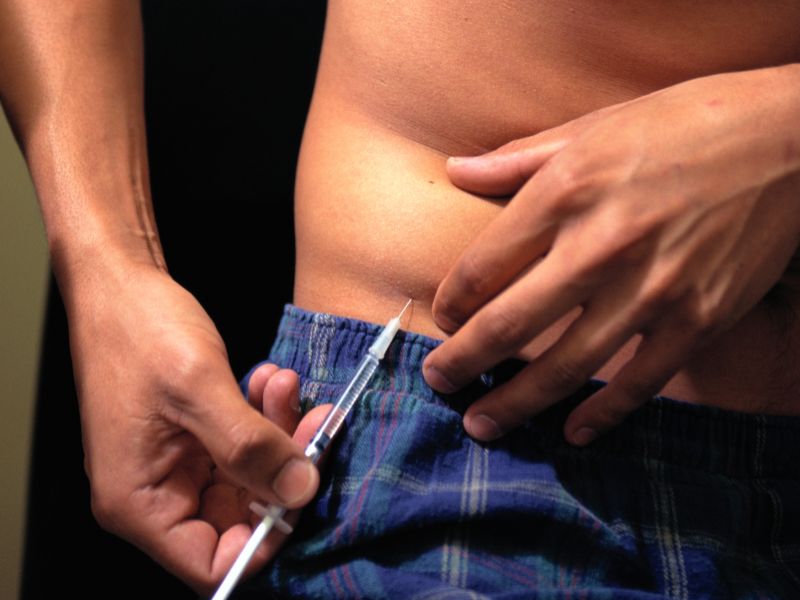By Serena Gordon
HealthDay Reporter

WEDNESDAY, Dec. 26, 2018 (HealthDay News) -- The bacteria living in your digestive system might determine how your body processes diabetes medications, a new review suggests.
Researchers combed through more than 100 published studies conducted in people or in rodents to see how the gut microbiome -- bacteria living in the digestive system -- could impair or enhance the way diabetes drugs work.
"You can have two people who take the same drug and eat the same diet, but their blood glucose isn't controlled in a similar way because there are different microbes in the gut," said study senior author Hariom Yadav. He is an assistant professor of molecular medicine at Wake Forest Baptist Medical Center in Winston-Salem, N.C.
Yadav also noted that some drugs work fine if given intravenously. But that same drug given as a pill might not work at all. The hormone insulin is one such medication.
Another commonly used diabetes drug called metformin works well as a pill but doesn't work when given intravenously, according to Yadav.
Metformin is typically the first treatment given to people with type 2 diabetes, according to the American Diabetes Association. The drug helps the body use more insulin.
Yadav said metformin is the diabetes drug that is most well-known for interacting with the gut microbiome. "The microbiome helps metformin to work, and it only works when given by the oral route. Giving by IV, it doesn't decrease blood glucose levels," he noted.
While metformin can help keep blood sugar levels in check, the side effects -- such as nausea and diarrhea -- can be intolerable for some people.
"Most of metformin's side effects are gut-related. We are studying the side effects of metformin to see if taking a prebiotic can enhance tolerance for metformin," Yadav said.
Prebiotics are natural components in food that promote the growth of healthy bacteria, according to the Academy of Nutrition and Dietetics. Prebiotics are found in fruits, vegetables and whole grains. Probiotics are good bacteria found in foods.
Another diabetes medication found to interact with the microbiome is acarbose (Precose). This drug delays the intestinal absorption and digestion of certain carbohydrates. That means that the drug is affecting the microbiome's food source. The researchers said this medication plays a significant role in partially restoring an imbalance in the microbiome found in people with type 2 diabetes.
So what does all this mean for someone with type 2 diabetes?
Yadav said when people are first diagnosed with the disease, they're put on one drug. If that doesn't work, they try another, and then possibly a combination. "It's trial and error to find what works. But if we have the microbiome signature, a doctor could predict what drug would work. We're trying to develop these markers. At the same time, we're also working to develop probiotics or prebiotics to make the microbiome help the drugs work," he explained.
"The microbiome can help us. It's good to know what your microbes are doing for your body, and to feed them the right stuff. In general, a mostly high-fiber diet makes the microbiome more happy," Yadav said.
According to Dr. Joel Zonszein, director of the clinical diabetes center at Montefiore Medical Center in New York City, "The microbiome plays an important role in diabetes. It changes according to nutrients, the use of antibiotics and or chemicals ingested. There is no question that the microbiome has an important role in the metabolism of sugar and fats."
But he questioned how much the microbiome could affect how well a drug works. "The differences in an individual's response to a medication are more complex than what impact the microbiome can have. While the gut microbiome may influence drug metabolism, it is doubtful that it will change the potency of the drug and/or create inactivity or toxicity," Zonszein said.
The study was published recently in the journal EBioMedicine.
More information
Learn more about microbiomes from the Kavli Foundation.
Back

The news stories provided in Health News and our Health-E News Newsletter are a service of the nationally syndicated HealthDay® news and information company. Stories refer to national trends and breaking health news, and are not necessarily indicative of or always supported by our facility and providers. This information is provided for informational and educational purposes only, and is not intended to be a substitute for medical advice, diagnosis, or treatment.






